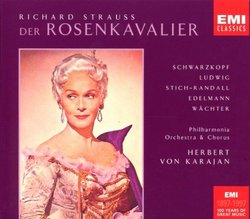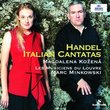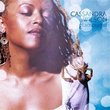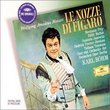| All Artists: R. Strauss, Schwarzkopf, Ludwig, Karajan Title: Richard Strauss: Der Rosenkavalier Members Wishing: 0 Total Copies: 0 Label: Angel Records Release Date: 9/23/1997 Genre: Classical Styles: Opera & Classical Vocal, Historical Periods, Modern, 20th, & 21st Century Number of Discs: 3 SwapaCD Credits: 3 UPC: 724355624222 |
Search - R. Strauss, Schwarzkopf, Ludwig :: Richard Strauss: Der Rosenkavalier
 | R. Strauss, Schwarzkopf, Ludwig Richard Strauss: Der Rosenkavalier Genre: Classical
An opera that seems to bring the best out of performers, Rosenkavalier inspired these perf ormers to make a recording for the ages. With a superb Ochs and glorious singing from its three leading l adies, and with Herbert... more » |
Larger Image |
CD DetailsSynopsis
Amazon.com essential recording An opera that seems to bring the best out of performers, Rosenkavalier inspired these perf ormers to make a recording for the ages. With a superb Ochs and glorious singing from its three leading l adies, and with Herbert von Karajan keeping the Philharmonia on the edge of its seat, this enticing portr ait of love from three angles emerges in all its bittersweet perfection. EMI recorded the opera with sepa rate engineering teams in stereo and mono; this remastering of the stereo version is preferable to the ve ry fine special-issue monaural remastering [EMI Classics 56113] brought out in 1996 as an 80th-birthday tribute to Dame Elisabeth Schwarzkopf. --Ted Libbey Similarly Requested CDs
|
Member CD ReviewsReviewed on 4/6/2009... This features a performance recorded at Kingway Hall, London, on Oct. 15, 1956. It features the Philharmonia Chorus & Orchestra conducted by Herbert Von Karajan, and heavyweights of that time period such as Elisabeth Schwarzkopf, Otto Edelmann, Christa Ludwig, Nicolai Gedda, Eberhard Wachter, and Teresa Stich-Randall. Elisabeth Schwarzkopf as the Fieldmarchallin gives a performance in her role by which all subsequent presentations of Der Rosenkavalier are inevitably compared & measured. The original recording was digitally remastered by EMI in 1987.
CD ReviewsStill THE Rosenkavalier Ha-De Nguyen | 06/10/1999 (5 out of 5 stars) "The Karajan/Schwarzkopf/Ludwig team are still unbeatable amongst a collection of great Rosenkavaliers out there. Elizabeth Schwarzkopf in particular is definitive; her finely nuanced acting in peak form in this recording. And her voice was born to be paired with Christa Ludwig's. The final trio of the women is heart-breakingly gorgeous. A beautiful recording, lush and intimate." Historical reference of Der Rosenkavalier Ha-De Nguyen | Paris, France (Europe) | 11/13/2000 (4 out of 5 stars) "Going through the other reviewing you will read that this version is exceptional or is too old technically for listeners that can only bear digital recordings. The point is, this version is a reference definitely but has been so for nearly half a century and maybe you would like to get something new for your ears. However I would probably recommend this version as a first purchasing if you have no idea of which to choose. Recorded in 1956 by EMI, the sound is in stereo but was only intended to be in mono. The producer Legge (Schwarzkopf's husband) was not convinced by that technology and only the engineer Parker was clever enough to make some attempts during the recording sessions. Therefore the whole set does not sound as a continuous unit with the orchestra sounding a little foggy. Voices are well caught but do not transmit all emotions as they should. Schwarzkopf cannot be replaced as the Marschallin and fortunately we have a good and complete portrayal from her in studio. But if you ever have the chance to see the movie made in 1960 at Salzburg, you will understand how in only 4 years, she has made this part definetly hers. Ludwig is vibrant and ardent as Oktavian (she was only 28) but sounds too mezzo. Jurinac was preferable but she had just recorded the part for Decca. Emi should then have chosen Grümmer! Stich-Randall is "silver-made" and you will never find a purer voice anywhere. But again, she also was 28 and lacks some determination in the character (I prefer her recording of the BW51 Cantate from Bach!). Ochs is from Vienna and one can hear his typical accent clearly but he does not really have the lower notes or the darker tone demanded by this role (see Weber, Böhme, Moll or Ridderbusch). Karajan gives a superb interpretation without underlining the legato too much as he later did in 1983 for DG. As a conclusion, do not hesitate to buy this set. If you already have it (even in older mastering, sound is not really improved and is even cooler here), try the fabulous live recording from Myto with Kleiber JR. conducting which I've given 5 stars!"
|

 Track Listings (19) - Disc #1
Track Listings (19) - Disc #1








